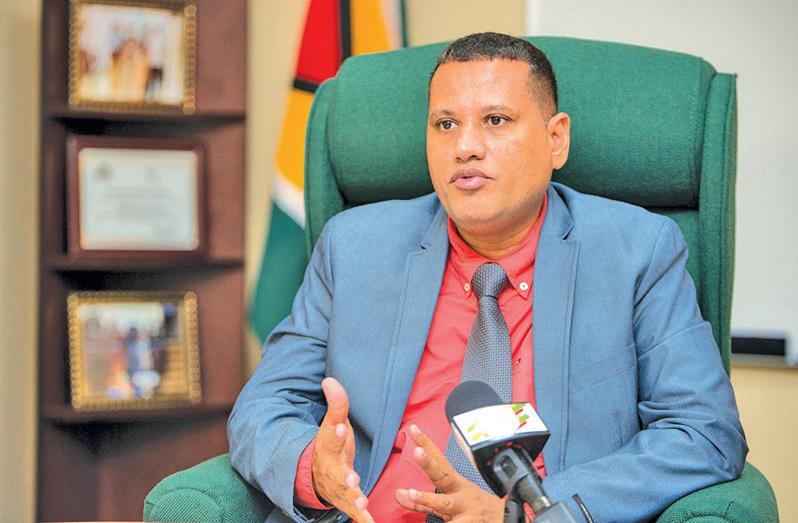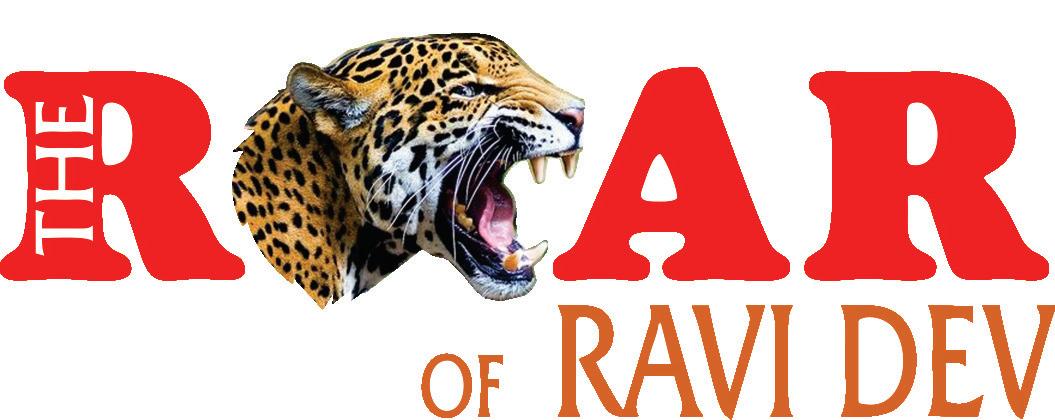NEWS
9
SUNDAY, MAY 16, 2021 | GUYANATIMESGY.COM
Guyana wins plaudits in US Report on religious freedom …says Govt continues to promote religious tolerance & diversity
Was WaltonDesir racist?
I
have held off to date from commenting on the remarks of Ms Walton-Desir that HAVE precipitated such a heated debate on race and racism in Guyana. On a social media discussion with David Hinds, attempting to explain voter behaviour in Guyana, Ms Desir divided them into “PPP voters and PNC voters”. After the storm erupted, Ms Desir asserted that she never spoke about “Indian and African Guyanese”. While she did not do so explicitly, even if Ms Desir were not an attorney who studied defamation, she knows that if ordinary Ravi Dev Guyanese listening to her could identify who she was referring to, then it’s rather disingenuous to sustain her denial. So, let’s move on. What did Ms Desir say? Pertinently, that PPP voters are “a bunch of mentally lazy people” for whom “the burden of sorting things out for themselves is too great” and they remain “trapped and in bondage”. “Contrastingly” she asserted, “supporters of the PNC are far more inquisitive, and enquiring and who have a greater appreciation of the democratic process.” The question, therefore, is whether this statement is “racist”? It certainly is, since, at a minimum, it attributes an impaired mode of thinking to a whole group of people based on their race (Indian-Guyanese). In contrasting this racial group with another racial group, African-Guyanese, whom she claims are superior in their thinking process, Ms Desir removes all doubt as to the import of her statement about Indian-Guyanese. It was, and is, racist. The irony is that Ms Desir’s evaluation of IndianGuyanese voting behaviour is a rather inelegant statement of what political scientists have discovered as far back as the 1960s - but applying to all voters. Using research drawn from psychology on the limits of rationality when applied in everyday decision making, they came up with the notion of “bounded rationality” and the use of “heuristics” or shortcuts in voter decision-making. They explicitly explained that it had nothing to do with being stupid or “mentally lazy” as Ms Desir proposed. Back in the 1990s, Prof Michael Dyson used the concept as the “Black Utility Heuristic” to explain Black Americans’ voting patterns. He postulated that the heuristic was related to their knowledge of their condition, and one of the elements of their heuristic was the acknowledgement of a “linked fate” as a group. From this perspective, their behaviour was quite rational. These are matters I have written on extensively over the years to explain Guyanese voting by the major ethnic groups. All Guyanese, being humans, utilise heuristics to make decisions in politics and in life. I have proposed that because of their lived experience, which had sedimented to make them perceive their linked fates ethnically, the structural bases of the heuristic for the major ethnic groups are their “Ethnic Security Dilemmas”. And the “knowledge” that actuates them is embodied in the narratives each group have about themselves and other groups. Ms Desir was merely regurgitating the heuristics from her “ethnic group’s” narrative. As I wrote to Vincent Alexander a few months ago in our discussion on the subject, African-Guyanese stressed their “earlier westernization”, of which Ms Desir’s rationality and democracy are integral elements. I continued that “The Indian-Guyanese narrative, on the other hand, proposed that they saved the sugar industry – and hence Guyana as a viable entity – since a peasant economy could not generate the funds necessary to maintain the hydraulics”. That they remained rural bound to accomplish this task and away from “westernization” longer allowed African Guyanese to inflict epistemic violence on them with the claim that they were “mentally lazy” and “not rational” So yes, Ms Desir was being racist in her explanation some claim, not intentionally so. I agree, yet she uttered words that made an entire group of fellow Guyanese feel insulted, her intention does not matter. And in fact, it is privileging her as the perpetrator of the racist statement to make that exculpatory argument rather than focusing on the feelings of the persons who have been harmed. I conclude with what I had told Vincent: “notwithstanding our several ethnic orientations and truths, we have to craft a common narrative that infuses a Civic Guyanese nationalism to deliver justice and equity through its institutions to all Guyanese.” We must be careful with our words in Guyana; they have consequences.
G
uyana has won plaudits in the United States’ (US) latest report on religious freedom, which quoted religious leaders as saying that the Guyana Government has been consistent in trying to promote religious tolerance and diversity. According to the report, the Government has presided over a pluralistic society where the three denominations, Christians, Muslims and Hindus, live in relative harmony. Additionally, it was noted that the Constitution itself provides for freedom of religion and worship, including the right to choose and change one’s religion. Another observation of the report is the schooling system, which it noted features no religious education in public schools even if the school is religious affiliated. However, there are different rules for private religious schools. “There are both public and private religiously affiliated schools. Private schools are
operated entirely by private groups and are not funded by the State. All students attending private religious schools must participate in religious education, regardless of a student’s religious beliefs,” the report said. Meanwhile, it was further observed that the Government itself has interactions with all religious faiths. Reference was made to December, when Minister of Culture, Youth, and Sports Charles Ramson said he was focused on ensuring public observances of national holidays were religiously diverse, while having members of different religious groups participate actively in
national celebrations. “He also said he was committed to holding a dialogue with all religious organizations to better understand their needs and concerns. Government representatives continued to meet with leaders of various religious groups to promote social cohesion and discuss tolerance of diversity, including Muslim, Hindu, and Christian groups.” “Government officials also participated regularly in the observance of Christian, Hindu, and Islamic religious holidays throughout the year. The Government continued to declare some holy days of the country’s three major religious groups, including Eid al-Adha, Holi, Easter, and Diwali, as national holidays,” the report said. Mention was also made of the representatives of the Rastafarian community, who continued to complain that a law criminalising the possession of marijuana infringed on their religious practices. It
is something that the People’s Progressive Party (PPP) has made significant progress in addressing since coming to power last year. “In September, at an interfaith roundtable, a representative of the council said the group would be advocating with the newly installed Government to decriminalise marijuana possession for religious purposes. The council also asked for international support to lobby the Government,” the report said. “In December, the Cabinet approved a decision to amend the law to remove custodial sentencing for small amounts of marijuana. It also said it was deliberating on the quantity that would not mandate custodial sentencing.” During a press conference last year, Attorney General Anil Nandlall had said the removal of custodial sentencing for small amounts of marijuana is a manifesto promise the PPP/C Administration intends to keep. (G3)





